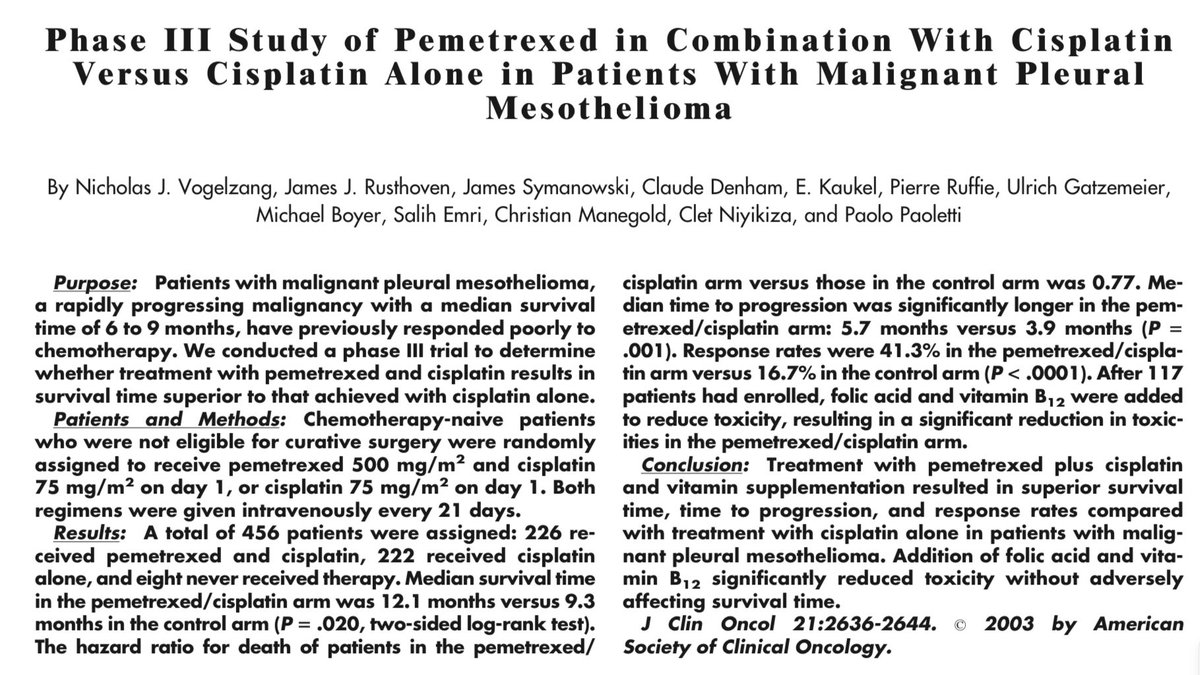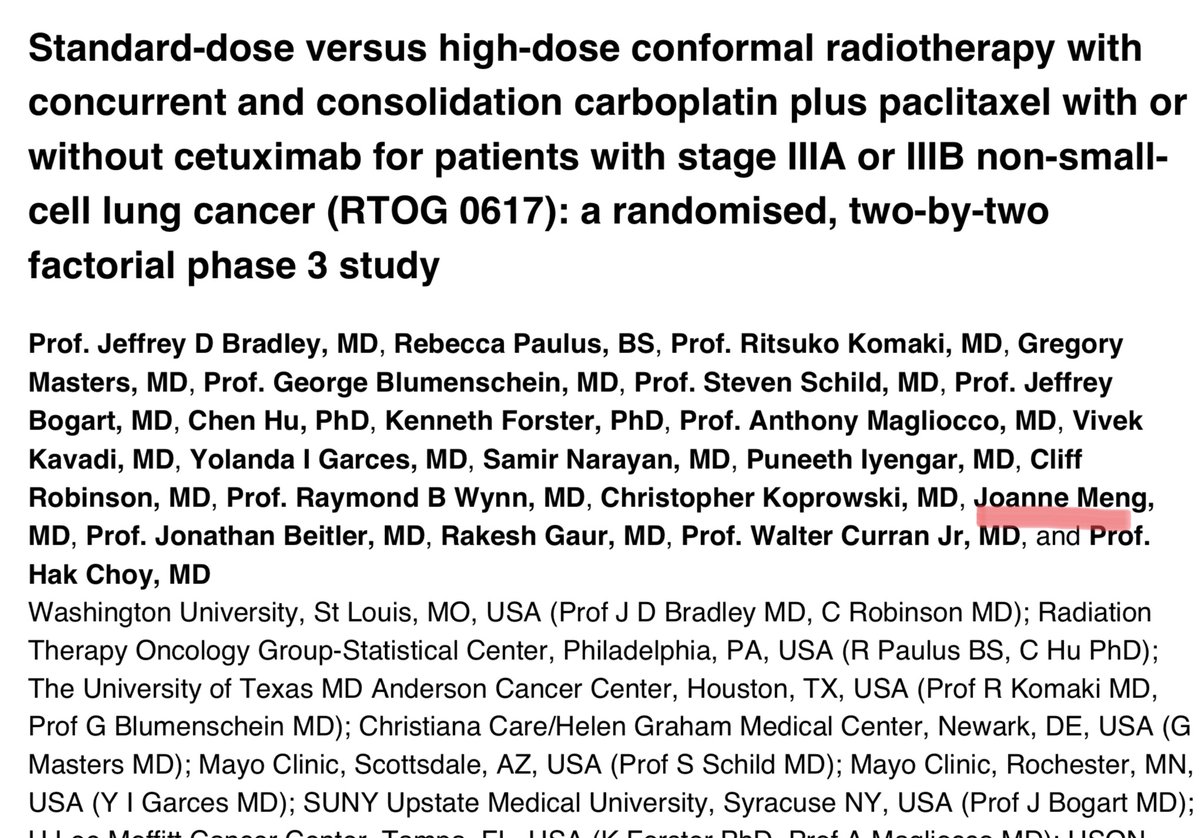
15 November: Vitamins, a note to trainees
For Lung Cancer Awareness Month #LCAM I’m going to summarize 30 important lung cancer trials over 30 days. These posts are directed at non-medical professionals, with descriptions of the results and of what makes a good trial. #lcsm 1/14
For Lung Cancer Awareness Month #LCAM I’m going to summarize 30 important lung cancer trials over 30 days. These posts are directed at non-medical professionals, with descriptions of the results and of what makes a good trial. #lcsm 1/14

To date we have looked at trials that compared different treatments. Today, we’re going to look at something a little different: a trial of the schedule of supportive medications that are given along with chemotherapy, in this case vitamin B12 and folic acid with pemetrexed. 2/14
We have seen how pemetrexed has become one of the most commonly used chemotherapy drugs in non-squamous NSCLC (11, 13 November). Compared to other chemo drugs we think that it has a relatively good safety profile, but it was not always so. 3/14
Early in its development, pemetrexed was worrisome for the impact it had on people’s blood counts. A 2003 mesothelioma trial showed that this effect could be mitigated by giving supplemental vitamin B12 and folic acid, starting 1 week before treatment. 4/14 

Cheap, non-toxic interventions that minimize side effects are a win for patients. But the 1-week run-in could be a hassle. The B12 is given subcutaneously, potentially requiring an extra clinic visit, and patients probably had chemo delayed a week to allow the vitamin run-in.5/14
This trial looked at the question of whether the run-in was necessary. People getting platinum-pemetrexed chemo were randomized to start vitamins 5-7 days before treatment, or on the same day the chemo began. The primary outcome was rates of hematologic toxicity. 6/14
Honestly, the primary outcome described in the paper is a bit of a mess: they test the hypothesis that the run-in arm would have less anemia (commonest type of low blood count).
The trial is designed to test superiority, when non-inferiority (see 11 Nov) would've made more sense.
The trial is designed to test superiority, when non-inferiority (see 11 Nov) would've made more sense.
Interpreting the trial rigourously, one would say that it was negative (the run-in arm was not superior). This is not exactly the same as saying that the no-run-in arm is non-inferior (which I think is what we’d like to be able to say). 8/14
The totality of the data they present is reassuring, though. Although there are some hints of lower blood counts in the arm without run-in, there is no evidence that this translated into delayed treatments or dose reductions. 9/14 

Although imperfect, this data became relevant to me in the early days of the pandemic. Suddenly we were doing consults by phone, and patients were highly motivated to minimize their trips to the hospital. Was it really necessary to make that extra trip in for a B12 shot? 10/14
Having randomized data made me comfortable moving the B12 to the first day of chemo, when patients have to physically come to the chemo unit. Of the many adjustments to care that we made during the pandemic, this one will likely persist in my practice. 11/14
I also wanted to include this study because I’ve seen a lot of residents and fellows following these updates. I want to show that you don’t need multi-million dollars and a pharma partner to do research that impacts people. You need a good idea, and commitment to see it through.
There are a lot of impediments to doing clinical research. If any readers are interested in a program to simplify the conduct of pragmatic trials, please check out this work by my colleague Mark Clemons pubmed.ncbi.nlm.nih.gov/31127468/
13/14
13/14
Tomorrow we’re back in the realm of immunotherapy and metastatic lung cancer, and we’ll talk some more about KM curves. 14/14 

• • •
Missing some Tweet in this thread? You can try to
force a refresh










